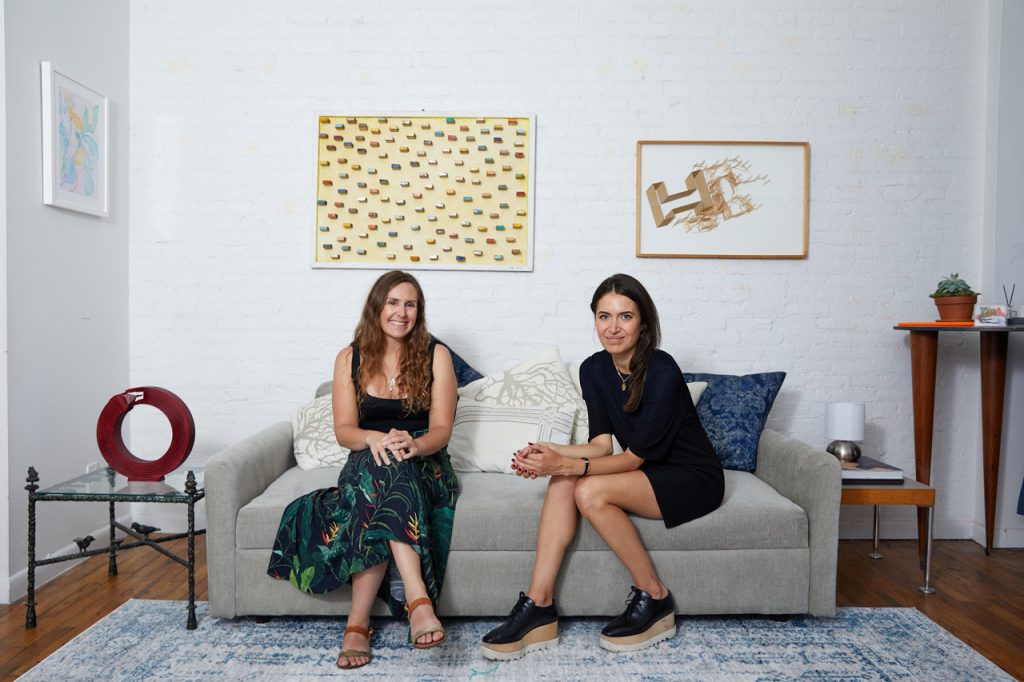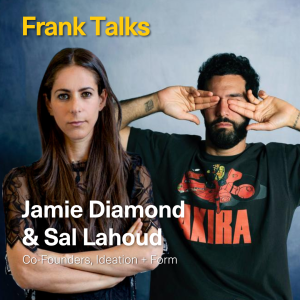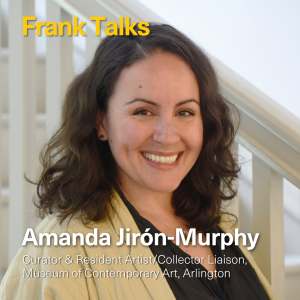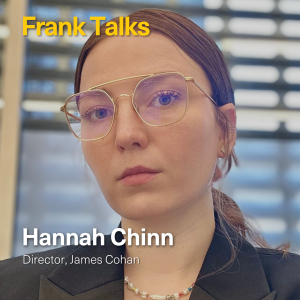This weekend we sit down with not one, but two amazing women, Manuela Seve and Renata Thomé, the ladies who founded and run Alpha’a. Alpha’a is a crowdsourced purpose driven art platform, whose mission is to revolutionize the arts, whilst honoring the profoundly human aspects of collecting. Manuela is founder and CEO of Alpha’a. With a background in finance, Manuela worked as an equity analyst at Gávea Investments, one of Brazil’s most reputable investment management firms. Manuela’s trajectory in the art world began at an early age; she comes from a long line of art collectors with a foothold in the Latin American art market. Born in Rio de Janeiro, Manuela received her Economics degree from IBMEC there. Renata is partner and CCO of Alpha’a. Renata brings an extensive network of collectors, artists and dealers to her work. Before joining Alpha’a she worked for major New York City galleries and auction houses including David Zwirner and in the Latin American art department at Christie’s. Previously, Renata worked as an art consultant for Paddle8. Renata was born in Sao Paulo and both she and Manuela currently live in New York City. Please enjoy this unique Frank Talk below!
What was your first job in the Arts?
M: When I graduated high school at 17, my dad which at the time lived in NY (I was in Brazil) had a heart attack, I moved to the city to help him run his gallery, that was how it all started.
R: While I was finishing my master’s degree at Christie’s I ended up taking an internship at the auction house, working in the Latin American art department. That was an amazing ‘real life’ school for me and I’m still in contact with some of my supervisors from that time.
What was the most useful or important thing you learned at that job?
M: The market lacked transparency in terms of pricing, and provenance was a major issue. Opportunities for up and coming artists were also extremely limited, I could tell that meritocracy was many times less important than relationships.
R: That there was a lot that could be done in order to improve research and cataloguing when it comes to art. Catalogue Raisonnes are hard to find and expensive and when it comes to Latin American artists it becomes even harder. I’m thankful for seeing all this from up-close, something which motivated me to start planning tools which we now use at Alpha’a.
Tell us a little more about yourself. When did you realize you wanted to pursue a career in this industry?
M: I moved back to Brazil after 2 years in NY, studied economics and went into finance, At the time I was reading Marc Rich’s book, “King of Oil,” and looking at the oil market in the 60s and comparing it to the way the art market still operates (limited number of players calling shots, lack of price transparency, etc.) there were so many similarities that an opportunity to disrupt it was very clear.
R: When I moved to NY and started spending a lot of time with some friends who already worked in the sector. This city lives and breathes art and it was easy for me to start getting involved.
What do you do now?
M: I’m CEO and co-founder of Alpha’a, we’re a b2b marketplace connecting companies to the visual arts.
R: I’m a co-founder and Chief Creative Officer for Alpha’a.
Where are you from?
M: Rio de Janeiro, Brazil
R: Sao Paulo, Brazil; however, I’ve been living abroad for the past 14 years.
What is the arts community like there?
Growing and extremely rich. Brazilians have always used the arts to express things which they would not be able to do otherwise and for this reason this is a central force to our culture. Think of the years of dictatorship for instance, when we had the Tropicalia movement both in music and visual arts, broke rules and mesmerizing the world.
Brazilians have a deep appreciation for the national art production and you can see that through the success of our art fairs and auctions.
Has where you come from shaped what you do in the arts today?
Yes. One of the biggest problems we face in Brazil, not only in the art sector, is logistics and taxation. This has always been a huge impediment for companies and because of that we have created a business model which deals with such issues in a very innovative way. We produce the limited edition prints we sell through a network of suppliers in three different continents, always choosing who to work with accordingly to the final destination of the pieces. Since everything is produced on demand there are no costs associated to production for the artist.
What is the best piece of advice you can give about working in the art world?
Be thoughtful to your ideas and open minded to learning new things. In the very beginning of our journey with Alpha’a many people tried to talk us out of what we were doing but we never stopped believing in our mission. However, the path to where we are today has been bumpy and with a bunch of pivots as we learned from the people we worked with and managed to create a platform which has real value to us and others who use it.
What is one of your greatest accomplishments in your career so far?
Taking this company off the ground and seeing ideas turn into real things. That is especially true once you start growing your team and have other people sharing your dreams.
What has been a challenge for you?
Being resilient and filtering through feedback. Everyone has an opinion and many times the negative opinions can get to you, it’s important to listen but remember that you are the expert.
What is something you do every day at work?
We set our goals for the day/week. Every Monday we have a team meeting to understand what everyone is doing, what has been accomplished in the previous week and needs to be done next. Having clear goals in mind (and on paper sometimes) helps you stay on track.
What is one of the weirdest things you have had to do on the job in your career?
In 2017 Alpha’a partnered with Oceanic Global to launch a line of prints which would benefit the NGO and raise awareness about ocean conservation. Our exhibition was set to happen at a partner’s space in downtown Miami but when we arrived at the location a week before the event opened we were surprised to see it was completely bare (no ceiling, floor, etc…) We also had no more budget so our only solution was to run to the hardware store and build it ourselves.
What defines a good employee? What defines a good boss?
A good employee needs to be a team player. We always make sure to share with our new hires that working with a startup is very different from working for a bigger company and you people should be willing to wear different hats, as well as being flexible with their routines as things change fast and often.
A good boss on the other hand needs to be able to help employees acquire skills and passion for the work they are developing. When we are all working for the same objective there are greater chances for success.
What do you think makes a person hirable?
Tenacity, drive, agility, flexibility and good work ethics.
What is your advice to making yourself stand out in your workplace?
Be positive, try to think outside of the box, understand your strengths and try to become an expert in those areas. Other skills may be learned along the way but you need to become irreplaceable in at least one or more capacities so people will remember you. That is also true for companies.
What are things you can do proactively boost your CV?
Find your areas of passion/ strengths and try to build more on those capacities. There is always a potential for improvement and finding a mentor from whom you can learn from can help accelerate that process. Schools are great alternatives too, it is always great to keep your mind stimulated.
Are there any tips you can give people entering the workforce?
Finding that one person who will give you the first opportunity to work might be hard and at times frustrating but remember we have all been in that position once and you should never doubt yourself for the lack of experience. Be honest when you don’t know the answer for something, and be humble. People like to be helpful as long as they feel appreciated.
In your experience, what are things to do and things to avoid during an interview?
Be honest and always keep eye contact, those things will make your interviewer trust you more.
Any other anecdotes about your experience in the art world that you would like to share?
We both had very bad experiences when working at our ‘dream jobs,’ what the biggest lesson we took from this is that sometimes the job description doesn’t really meet your expectations. It is important to like the place you are working at and the people you will be working with as you will be spending a very large portion of your time in this environment.
What is the best exhibition you have seen in the last year?
Not technically an exhibition but we recently went to visit Donald Judd’s house in Soho. It is wonderful!
Visiting Marfa and Inhotim in Brazil are both priceless experiences, art was meant to be experienced in large scale and integrated with the elements.
If you could own a work by 5 different artists, who would be in your collection?
Alex Arrechea
Jarbas Lopes
Carmen Herrera
Donald Judd
Dan Flavin
